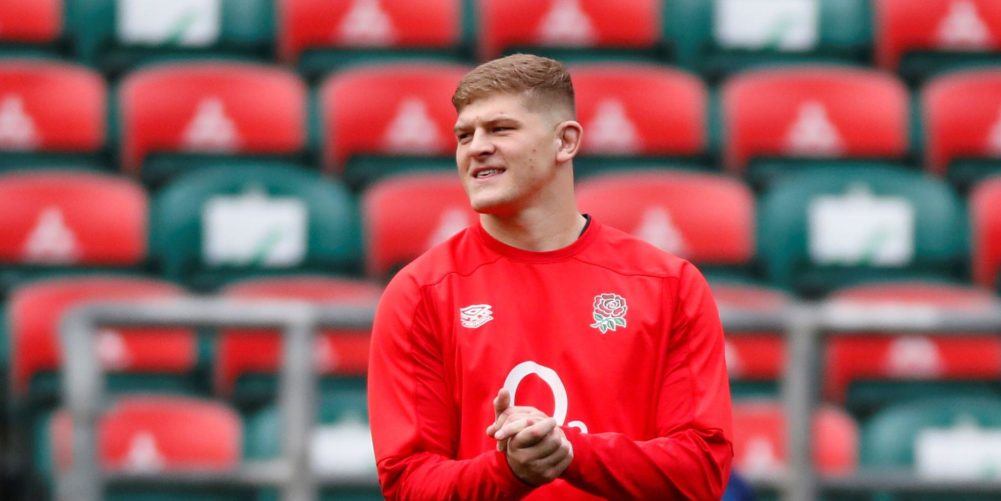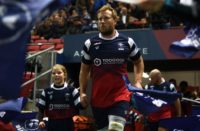PAUL REES HEARS ENGLAND COACH EDDIE JONES EXPLAIN WHAT HE EXPECTS TO SEE FROM HIS 36-MAN TRAINING SQUAD
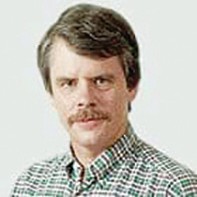
England's team in the 2019 World Cup final against South Africa was the youngest to appear in the showpiece in the professional era. For all the changes made by head coach Eddie Jones since then – he included 10 uncapped players in his 36- strong squad that is spending three days together this week – there is a strong thread of continuity.
Only two of the starting line-up that day in Yokohama have not been involved with England this season: Billy Vunipola has been overlooked with Alex Dombrandt and Sam Simmonds preferred at No.8 while injury ruled out Anthony Watson, who was last week named in the squad. Only three of the replacements have survived, although none of them is involved this week, and it is the undercard Jones is paying significant attention to.
There have been tweaks to the starting line-up, most notably at outside-half where Marcus Smith has supplanted George Ford. The move has divided opinion, but Smith is a 10 who thrives on quick possession and England, with injuries ravaging the back row this season, needed Ben Youngs' controlling influence at scrum-half.
Youngs was one of a number of senior players left out of the squad which was selected more with next month's uncapped match against the Barbarians at Twickenham in mind rather than the summer tour to Australia, but Jones will also have an eye on next year's World Cup.
Youngs, who became England's most capped player this season, will be 34 when the tournament starts, although, as the professional era has progressed, age has become less of a factor with players looking after themselves to prolong their careers, as shown by the example of one of Youngs' rivals at Leicester, Richard Wigglesworth, who has signed on for another season with the Tigers, by the end of which he will have turned 40.
The three scrum-halves in the squad have seven caps between them: Harry Randall, who featured in this year's Six Nations, has six with Alex Mitchell one and Leicester's Jack van Poortvliet, last year's Under-20 captain, yet to be capped.
Mitchell has been in Jones' thoughts since before the last World Cup: he started the 2019 match against the Barbarians and was called into the squad during the 2020 Six Nations. His only cap came last November when he replaced Randall with 13 minutes to go against Tonga, scoring a try.
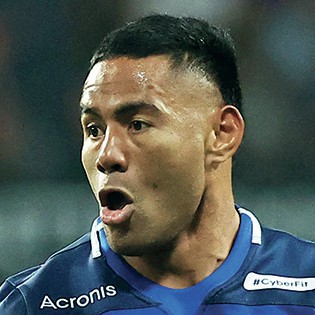
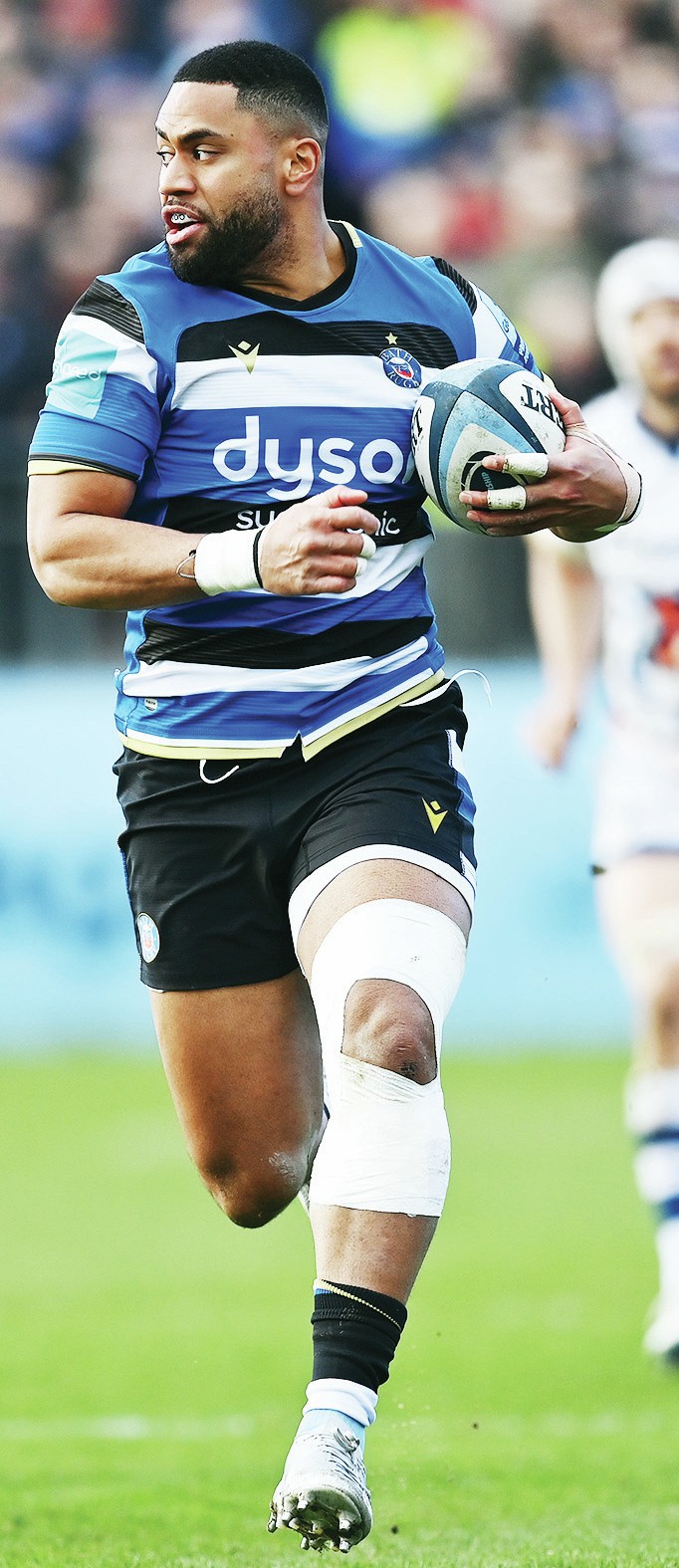
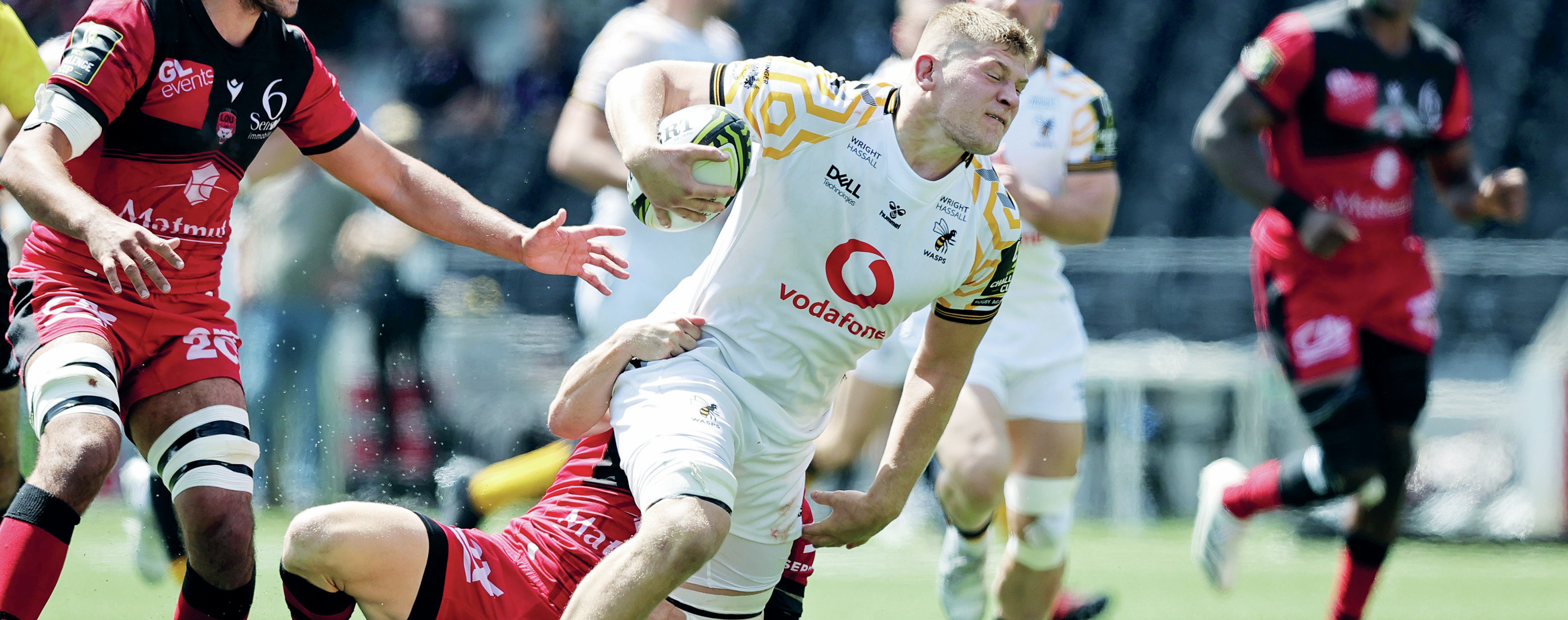
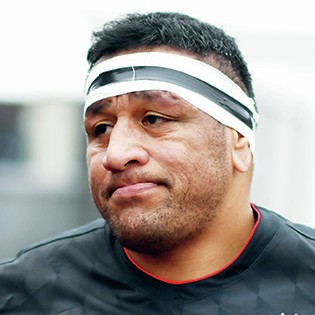
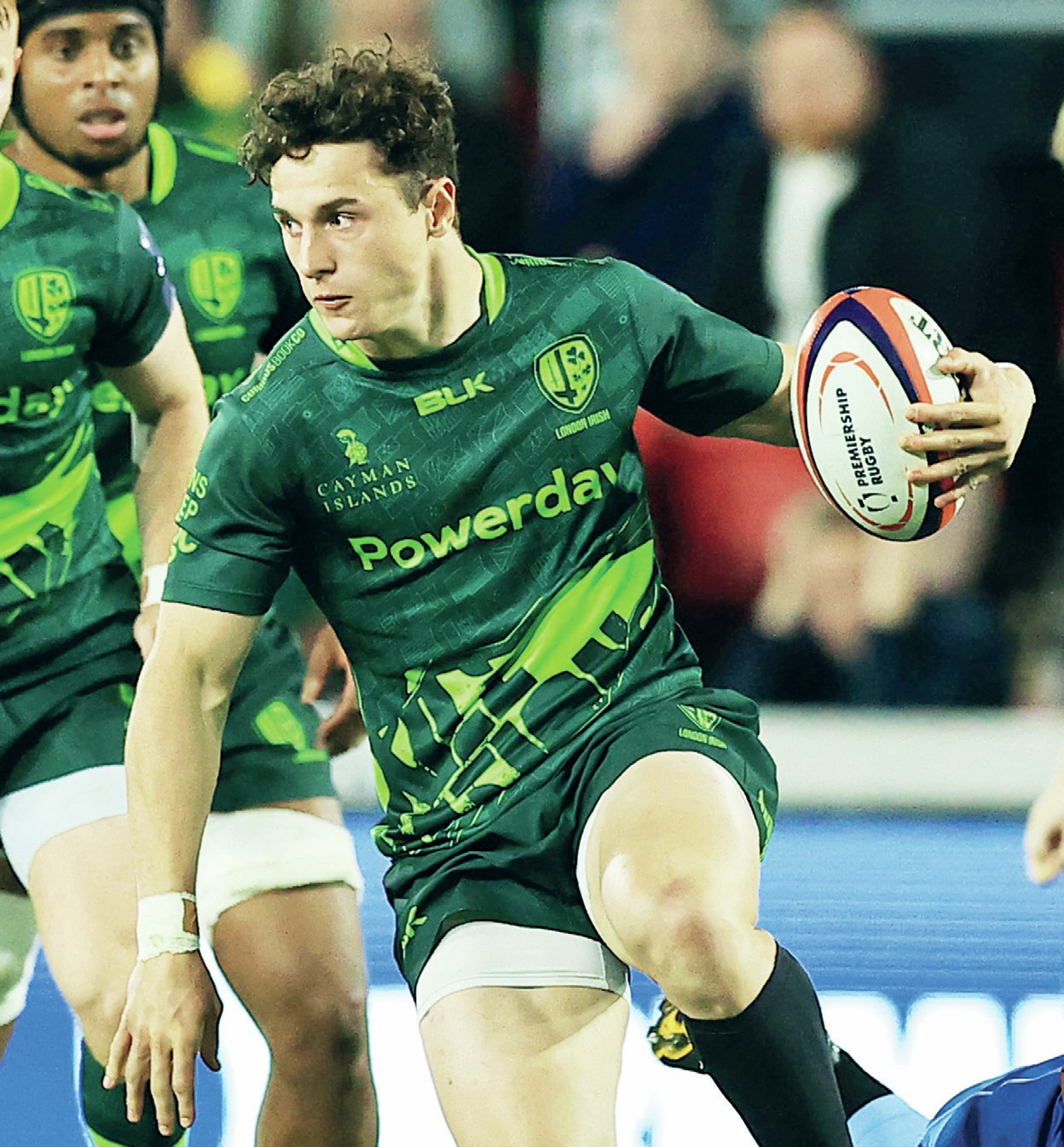
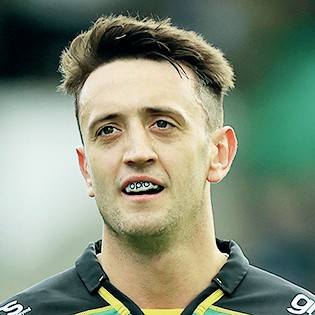
He is one of four backs in the squad who play for Northampton, a team whose game under Chris Boyd is based on the speed of delivery from the ruck. Mitchell helped put them in the driving seat for fourth place with two rounds of the Premiership to go, turning the game at Bath before stretching the Harlequins' defence to breaking point.
Since Jamison Gibson-Park supplanted Conor Murray as Ireland's scrum-half, their game has transformed from one which was slow and deliberate, a mix of endless phase play around the fringes and kicking, to one which is based on speed of distribution and skill.
Mitchell is a scrum-half in the Gibson-Park mould who is in peak form. If not now, it may be never for the 24-year-old with Raffi Quirke back in the mix next season. Jones did not say whether any or all of the experienced players involved in the Six Nations who were not invited to Richmond this week would be going to Australia and it was at this stage before the last World Cup that he decided some of his stalwarts would not make it to Japan.
Scrum-half will be an interesting call, not just in terms of indicating how England will be shaped tactically but because without Youngs, there is little Test experience.
There are 15 Tests before lift-off in France, but only one tournament, the 2023 Six Nations.
Part of the reason England were unable to secure the quick ball that defined the campaigns of France and Ireland in the Six Nations was the lack of continuity in the back row: at some points it was made up of a second row and two No.8s, blurring the balance between carrying and clearing out. Smith was often forced to kick away slow possession and, Italy aside, England struggled to create.
“Alex Mitchell is a No.9 in the mould of Gibson-Park and is in peak form”
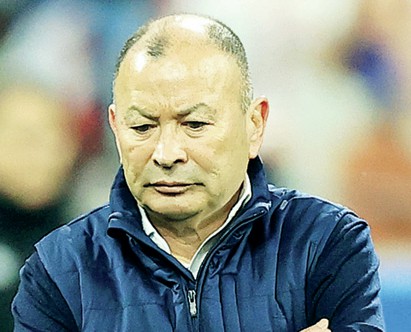
Jack Willis has won only three caps but the Wasps' back rower fills a number of roles, as comfortable carrying and tackling as he is clearing out. He missed the entire Six Nations while Sam Underhill was available only for the last match and Lewis Ludlam the first. Tom Curry was appointed captain for the tournament but only played in half of it before suffering a hamstring strain.
All four are in this week's squad, along with the uncapped Wasps'
No.8 Alfie Barbeary, a player who makes ground with the ball, along with the recalled prop Mako Vunipola whose presence at attacking rucks has been missed by England. And there is Tom Pearson, one of a number of young players who have made an impact at London Irish this season. The 22- year-old may be an outsider for the Australia tour, but if he impresses Jones in training he should feature against the Barbarians.
Seven of the uncapped players are backs. Another six have between one and 11 caps and only three are Test hardened, Owen Farrell, Manu Tuilagi and Watson, who all missed the Six Nations through injury. Tuilagi and Farrell lined up in the midfield in the 2019 final with Ford at outside-half. Jones, right, admitted after the 32-12 defeat that he had got that selection wrong and should have played Farrell at 10.
He talked last week about combinations and a Tuilagi-Farrell-Smith midfield axis is one he will be looking at. The three have played in the same team together once, against Australia last November when Tuilagi was on the wing, one of a number of nonspecialists to be played there this season along with Joe Marchant, Max Malins and Freddie Steward.
Wing is one of the positions where Jones is spoiled for choice, like a kid in a sweet shop. Louis Lynagh, Watson and Joe Cokanasi-ga are involved this week, along with Tommy Freeman, who has played at full-back wing for . Northampton this season, and Henry Arundell, the London Irish full-back.
“Imagine if you have Cokanasiga, who gives you a point of difference if he is fit and playing consistently, on one Arundell on the other,” said Jones. “That is a frightening combination for an international team.” Arundell's director of rugby at London Irish, Declan Kidney, sees it differently. “Henry has a number of very strong attributes but I see full-back as his primary position,” he said. “He could play on the wing, but there is quite a difference between the positions.”
ENGLAND TRAINING SQUAD
Forwards: Alfie Barbeary (Wasps), Jamie Blamire (Newcastle), Ollie Chessum (Leicester), Tom Curry (Sale), Nic Dolly (Leicester), Alex Dombrandt (Harlequins), Charlie Ewels (Bath), Ellis Genge (Leicester), Joe Heyes (Leicester), Maro Itoje (Saracens), Joe Launchbury (Wasps), Courtney Lawes (Northampton), Lewis Ludlam (Northampton), George McGuigan (Newcastle), Tom Pearson (London Irish), Bevan Rodd (Sale), Will Stuart (Bath), Sam Underhill (Bath), Mako Vunipola (Saracens), Jack Willis (Wasps)
Backs: Henry Arundell (London Irish), Orlando Bailey (Bath), Joe Cokanasiga (Bath), Fraser Dingwall (Northampton), Owen Farrell (Saracens), Tommy Freeman (Northampton), George Furbank (Northampton), Will Joseph (London Irish), Louis Lynagh (Harlequins), Alex Mitchell (Northampton), Harry Randall (Bristol), Marcus Smith (Harlequins), Freddie Steward (Leicester), Manu Tuilagi (Sale), Jack van Poortvliet (Leicester), Anthony Watson (Bath)
Versatility is a theme of Jones' who has overlooked wings such as Ollie Thorley, Cadan Murley, Adam Radwan, Ollie Hassell-Collins, Aaron Reed, Rotimi Segun and Paolo Odogwu while Jonny May, Jack Nowell and Elliot Daly will return at some point. “Gas, power and guts are the three major prerequisites for good rugby players,” said Jones, who with Tuilagi and Cokanasiga back has the thrust behind England lacked in the Six Nations while Ollie Lawrence returned from a long-term injury for Worcester in the Premiership Cup final against London Irish last week.
That was a match in which Arundell had a taste of what is to come after the impact he has made in his debut season in senior rugby. His length-of-the-field try in the Challenge Cup quarter-final in Toulon made him the talk of social media, but Jones was more impressed with the 19-year-old's kick and-chase try against Wasps the week before that followed a basic mistake he had made moments after coming on.
“We need a more aggressive mindset,” said Jones. “It is not something you will get by having the players in camp for three days. We will try to get them to understand how we want to play. With young players, you need to know about their desire, work ethic and mental resilience.
“There are plenty of good young players who come through all the time and some of them have got something a little bit special. The test of a young payer becoming a good Test player is their ability to work hard, their ability to take knocks, to keep resilient physically and mentally and to have that mindset to keep improving. If they believe what his written about them, they do not work hard enough. They will make it if they have talent and put the effort in.”
Jones stressed the need for England's staples of scrums, lineouts and mauls to be given a thorough service this year and the faults in all areas shown during the Six Nations mean that all the uncapped players in the World Cup have been picked with the World Cup in mind, not some point further into the future. “I have never known a World Cup coach who is worried about a team after the tournament,” he said.
“Wing is one of the positions where England are spoilt for choice”
“We are always looking for new talent to come through and a couple of young kids we are looking at now weren't on our radar 12 months ago because we didn't know about them.
They have emerged and we have some older players coming back. It will all come out in the wash when we pick the squad for Australia.
The one we pick is probably going to be at the World Cup.”
England's first tour under Jones was to Australia in 2016, his country of birth where he made his name as a coach. They went there then as Six Nations champions having won the Grand Slam. This year they finished third and lost three of their five matches, suggesting they have declined in the last six years.
If they did not win the Six Nations by default in 2016, the level of competition was nowhere near as high as this year with none of the teams involved making the semi-finals of the World Cup in 2015. France continued their floundering, defeating Italy at home with a late penalty, Ireland were looking to reinvent themselves in the post-Paul O'Connell era having been cut open by Argentina and Wales had resistance but not a cutting edge.
“Since I have been with England, the depth of European rugby at international level has increased,” said Jones. “If I look at the Six Nations in my first couple of years, France were not strong, neither were Scotland. It is different now and it has improved the Six
Nations. Italy have got better, Japan is a top 10 country and beat Ireland and Scotland in the World Cup. Fiji are as strong as they have been. It is certainly better than it was from sixth to 11th in the world rankings.”
Six years ago, Australia were coming off the back of a World Cup final in which they lost to New Zealand. England achieved a whitewash in the series and have yet to lose to the Wallabies under Jones, overwhelming them in the 2019 World Cup quarter-final, with Michael Cheika's reign as head coach ending at the hands of his former Randwick colleague Jones.
“Australia are in a different position to six years ago,” said Jones. “They had an established team coming off the back of a World Cup in which they did exceedingly well. Their Super Rugby teams are young with a number of good players coming through.
“I am not going to try to pick (head coach) Dave Rennie's team for him, but it looks as if they will have a fairly young side. They will play his type of rugby with a lot of ball movement and sequence plays.
The challenge will be different in a game that is changing.”
The RFU came under fire for not dismissing Jones after a second successive Six Nations campaign that yielded two victories. A review followed that concluded while the campaign was disappointing, England were on the right track: they had defeated South Africa a few months before and had a number of players missing.
“It is normal to be criticised when you are not winning,” said Jones. “You never get used to losing and it is not a pleasant experience, but you have to take the positives out of it and look to the future, which is what we have been doing.
“My responsibility is to win and there will be pressure to do that in Australia. This tour is not different because we are not coming off the back of a Grand Slam. You never carry something with you. I have been lucky enough to win a World Cup and the next day all you are thinking about is what you are going to do next.”

